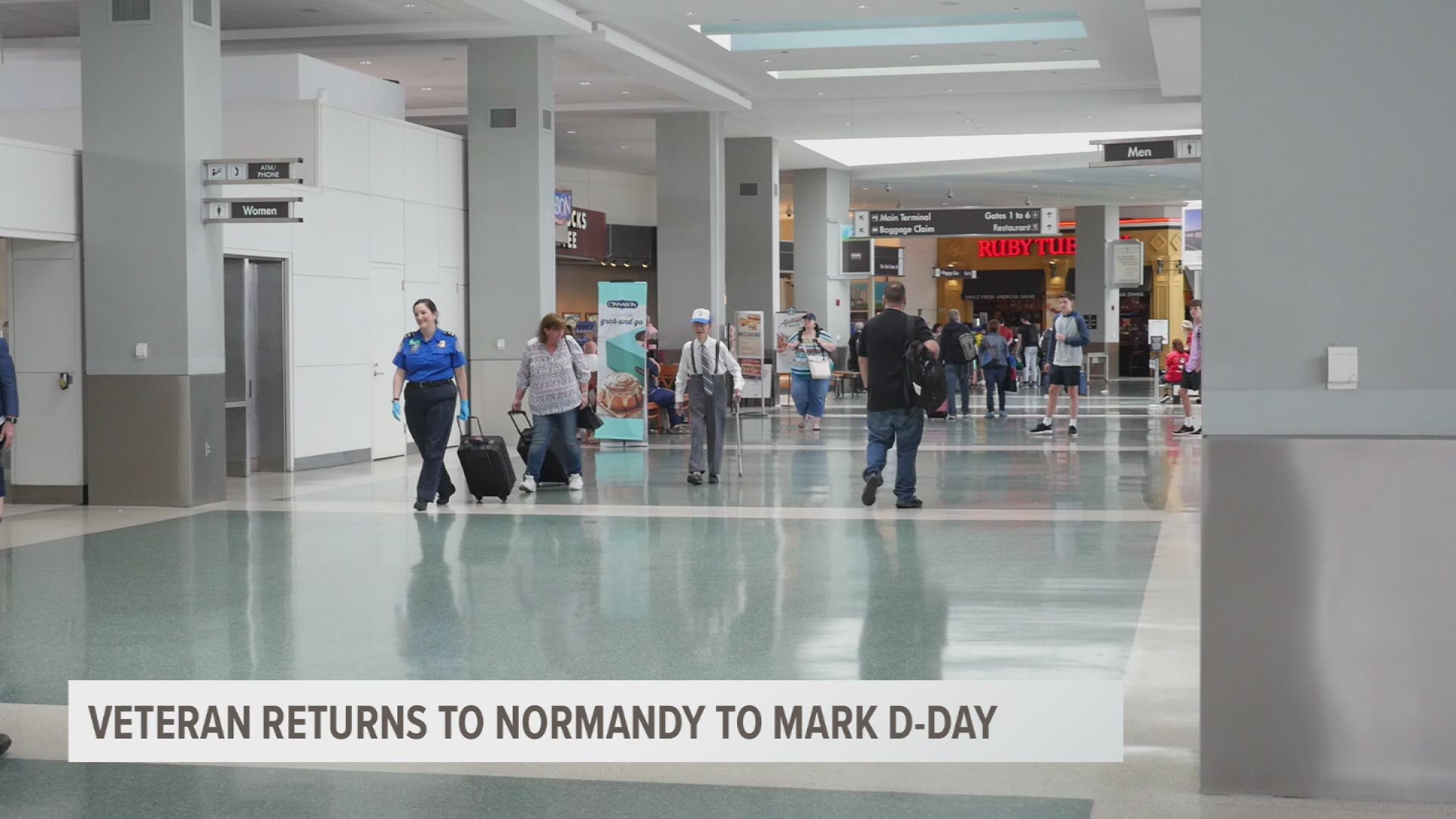A celebrated East Tennessee veteran of World War II made his third return trip to France to mark the 74th anniversary of the D-Day invasion.
“(land) behind enemy lines. Our objective was to keep the bridges and roads open for those coming from the shore,” recalled the now 97-year-old Clinton Riddle who served in an infantry unit assigned to gliders for the historic invasion June 6, 1944.
Those flimsy planes without motors were so prone to breaking apart during the sketchy landings that some troops dubbed them, “canvas coffins."
Their mission was to land in stealthy silence behind enemy lines in France and hold key positions and help speed the advance of the bulk of the invasion force.
“I hope to see some friends I made on previous trips. I don’t know how many will show up,” said Mr. Riddle at McGhee Tyson Airport minutes before boarding the first leg of his journey back to France. In 2014, 10 News followed Mr. Riddle and D-Day veteran Lawrence Brannan on a similar return trip.
Mr. Riddle’s role in the largest land, sea, and air invasion in history is just one of the milestones he witnessed during his 30 months overseas.
In all, the infantry units in which he served received credit for enduring more than 400 days under fire. Against Army orders he kept a journal through six campaigns and four invasions punctuated by another rough glider landing Holland.
His motto as a member of the 325th Glider Infantry was “Let’s Go!”
On his most recent trip overseas Mr. Riddle’s toughness was tested again after he fell and broke his hip. His daughter and traveling companion tells 10 News after surgery earlier in the week he is recovering and hopes to be back home in East Tennessee on Friday, June 8.
You can read more about the impact Mr. Riddle’s military service had on the rest of his life in the following 10 questions and this interview with the University of Tennessee or the National WWII Museum.
1. What one person influenced you most in life?
I guess that a boy in the 325th, Stephen Kralj. He was Czech and from Chicago. He was my foxhole buddy. He was about 6'6" and he and I could cram into the same foxhole together day and night for a year until he was wounded. He was hit in the neck with shrapnel. He did recover and we kept in touch after the war. He was from the big city and I was from the old farm. Together we knew everything. We were just like brothers.
2. Do you feel honored and respected for serving your country?
Definitely. I would do it again and wished I had stayed in. But after 30 months overseas I was ready to go.
3. How can people thank you for your service?
Just shake hands and tell me you appreciate it.
4. How do you honor your fellow service men and women?
I appreciate them and share that with them.
5. How do you think this generation of military men and women is different or similar to yours?
It is different mostly in they are all volunteers. They want to go in.
6. What influence did your military service have on the rest of your life?
I formed habits that I still carry with me today. I hang my jacket a certain way and place things in order.
7. Does your family have a history of military service?
No sir. I guess I do have relatives who served in the Cold War.
8. Would you encourage younger generations in your family to join the service?
Yes, I would. That is, up to a certain point. (Young people) need to taste it.
9. How has your opinion of war changed?
I've heard people say, 'war is hell.' Well, that's wrong. Wars end, hell don't. Before going in it can look glamorous but the glamour wore off. I tell people I was 5'6" going in and 5'5" coming out because I walked off an inch.
10. How did your military experience shape your religious faith?
I became a pastor on January 12,1951. I pastored four churches and all four I pastored at each for 30 years. I just recently spoke at my 107th church in the area.

